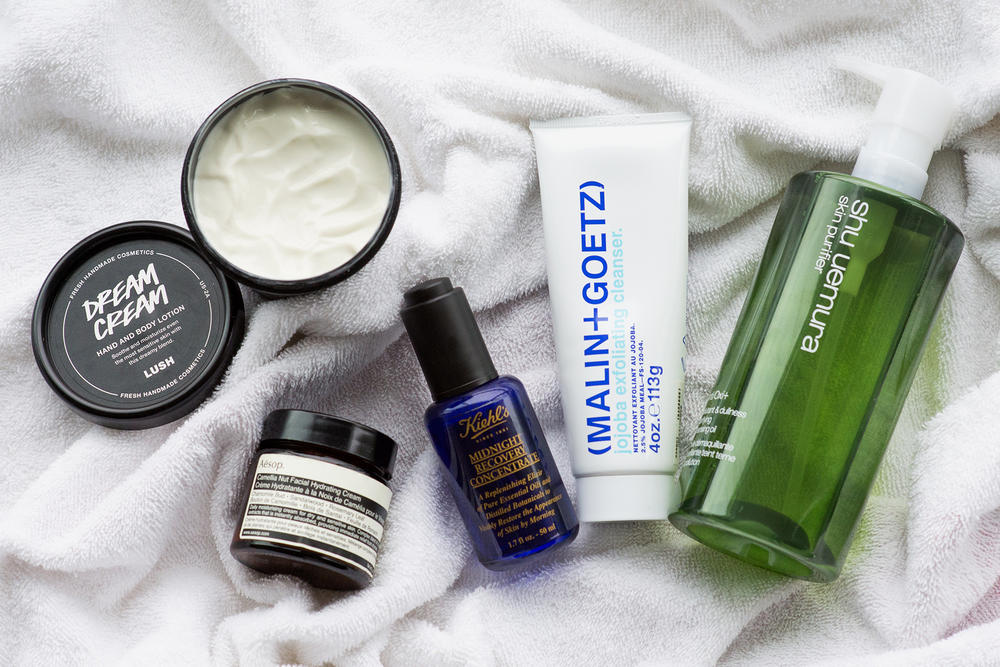SHARING IS (NOT) CARING: 36% Admit To Sharing Their Personal Hygiene Products With Others

New research from BEAUTY PIE has revealed that over a third (36%) of adults admit to sharing personal hygiene products with those they live with, despite the potential health risks. The study highlights a surprising trend where everyday personal hygiene tools such as nail clippers, tweezers, and even skincare products are commonly shared among family members, friends, and housemates without knowing the associated hygiene dangers.
The study surveyed 2,000 adults and found that one in five share skincare products, potentially risking bacterial contamination and skin irritation. In fact, a staggering 60% of men admit to using their partner’s products without their consent, compared to just 25% of women.
Hygiene Hazards of Sharing
While sharing items like lip balms and lipsticks is particularly popular among Gen Z (27% of 18-24-year-olds say they do this regularly), it can increase the risk of viral infections such as cold sores. Similarly, 15% of adults admit to sharing razors, a practice that can spread blood-borne diseases due to minor cuts often caused by shaving.
One in five (20%) adults admit to sharing serums, moisturisers and cleansers, with a quarter of women (25%) admitting to sharing these items with their partners and 60% of men saying they use these products without their partner knowing.
BEAUTY PIE’s Editorial Director and in-house skincare expert, Nicola Moulton, says: “When it comes to using someone else’s skincare, you risk skin irritations and reactions, especially if you have sensitive skin. You should always use products designed for your skin’s needs for the best results. Additionally, dipping your fingers into creams can introduce bad bacteria and dirt, which impacts the original owner if any contamination occurs.”
The Top 10 Most Shared Beauty Items:
Nail clippers (37%)
Tweezers (33%)
Hairbrushes (27%)
Skincare products (20%)
Lip balm (16%)
Razors (15%)
Shower puffs (11%)
Foundation (10%)
Foot files/pedicure tools (10%)
Lipstick (9%)
Who Are Adults Sharing Beauty Tools With?
The study revealed that people are sharing their beauty tools and products with their partners the most, with one in three (33%) saying that is the case, followed by family members (25%) and then friends (12%). In addition, Gen Z are most likely to share their items with friends, with many living with other students and friends, whilst those aged 65 and older most commonly share with their partner (56%).
Unseen Sharing: Products Used Without Consent
There’s an alarming trend of adults using hygiene products without the owner’s knowledge. Nearly a third of young adults aged 18-24 confess to using someone else’s items in secret, with hairbrushes topping the list (26%), closely followed by razors (24%) and moisturisers (22%).
Top 10 Beauty Tools or Products That Are Used Unknowingly:
Hairbrushes (26%)
Razors (24%)
Tweezers (22%)
Nail clippers (22%)
Moisturisers (22%)
Serums (22%)
Cleansers (22%)
Lipstick (18%)
Lip balm (17%)
Eyeshadow (17%)
Alarmingly, over three in 10 people (31%) believe sharing products is hygienic, with 9% believing it to be ‘very hygienic,’ whilst 40% believe it to be ‘totally safe.’
Men Are More Comfortable Sharing
Men are far more likely to share personal items, with 67% admitting to borrowing others’ hygiene products compared to just 26% of women. This extends even to toothbrushes, where 40% of men are open to sharing compared to just 26% of women. Additionally, razors are also a popular item for men to share with 63% saying they are happy to share compared to 32% of women.
The Top Items Men Are Most Comfortable Sharing
Foot file/pedicure tool – 74% (versus 41% of women)
Nail clippers – 73% (versus 30% of women)
Face cloth/muslin cloth – 73% (versus 47% of women)
Skincare products – 72% (versus 60% of women)
Shower puff – 70% (versus 51% of women)
Tweezers – 69% (versus 49% of women)
Razors – 63% (versus 32% of women)
Toothbrushes – 40% (versus 26% of women)
“Even though it may seem harmless, sharing personal products can lead to worrying consequences, from skin reactions to the spread of infections,” says Nicola. “If you are going to use an item that is not yours, make sure you ask permission and also inform the owner if you are unwell or have any infections. When it comes to skincare, it’s important that you only apply products that suit your skin type to avoid irritation and breakouts.”




